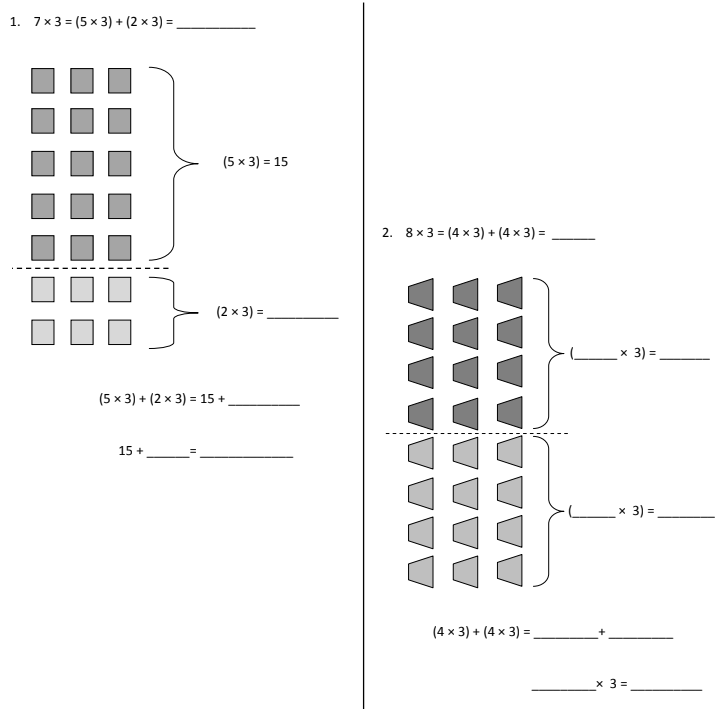
Examples, solutions, and videos to help Grade 3 students learn how to model the distributive property with arrays to decompose units as a strategy to multiply.
Common Core Standards: 3.OA.1, 3.OA.5, 3.OA.3, 3.OA.4

The following diagram shows the distributive property using the array model. Scroll down the page for more examples of the distributive property using the array model.
A guitar has 6 strings. How many strings are there on 3 guitars?
Draw an array to represent the total number of guitar strings.
8 × 2 = _____
Is (3 × 4) + (2 × 4) = 12 + 8 = 20 the same as 5 × 4?
Joe planted 6 rows of carrots in his garden. There are 6 carrots in each row. How many carrots did he plant?

Try the free Mathway calculator and problem solver below to practice various math topics. Try the given examples, or type in your own problem and check your answer with the step-by-step explanations.
We welcome your feedback, comments and questions about this site or page. Please submit your feedback or enquiries via our Feedback page.